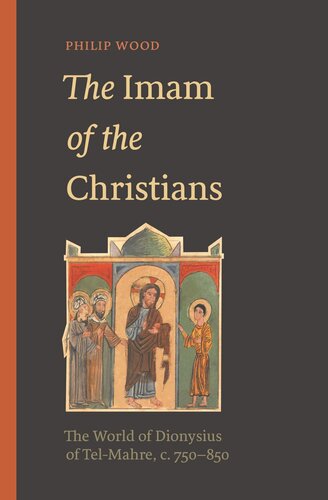

Most ebook files are in PDF format, so you can easily read them using various software such as Foxit Reader or directly on the Google Chrome browser.
Some ebook files are released by publishers in other formats such as .awz, .mobi, .epub, .fb2, etc. You may need to install specific software to read these formats on mobile/PC, such as Calibre.
Please read the tutorial at this link: https://ebookbell.com/faq
We offer FREE conversion to the popular formats you request; however, this may take some time. Therefore, right after payment, please email us, and we will try to provide the service as quickly as possible.
For some exceptional file formats or broken links (if any), please refrain from opening any disputes. Instead, email us first, and we will try to assist within a maximum of 6 hours.
EbookBell Team

0.0
0 reviewsHow Christian leaders adapted the governmental practices and political thought of their Muslim rulers in the Abbasid caliphate
The Imam of the Christians examines how Christian leaders adopted and adapted the political practices and ideas of their Muslim rulers between 750 and 850 in the Abbasid caliphate in the Jazira (modern eastern Turkey and northern Syria). Focusing on the writings of Dionysius of Tel-Mahre, the patriarch of the Jacobite church, Philip Wood describes how this encounter produced an Islamicate Christianity that differed from the Christianities of Byzantium and western Europe in far more than just theology. In doing so, Wood opens a new window on the world of early Islam and Muslims’ interactions with other religious communities.
Wood shows how Dionysus and other Christian clerics, by forging close ties with Muslim elites, were able to command greater power over their coreligionists, such as the right to issue canons regulating the lives of lay people, gather tithes, and use state troops to arrest opponents. In his writings, Dionysius advertises his ease in the courts of Abdallah ibn Tahir in Raqqa and the caliph al-Ma’mun in Baghdad, presenting himself as an effective advocate for the interests of his fellow Christians because of his knowledge of Arabic and his ability to redeploy Islamic ideas to his own advantage. Strikingly, Dionysius even claims that, like al-Ma’mun, he is an imam since he leads his people in prayer and rules them by popular consent.
A wide-ranging examination of Middle Eastern Christian life during a critical period in the development of Islam, The Imam of the Christians is also a case study of the surprising workings of cultural and religious adaptation.